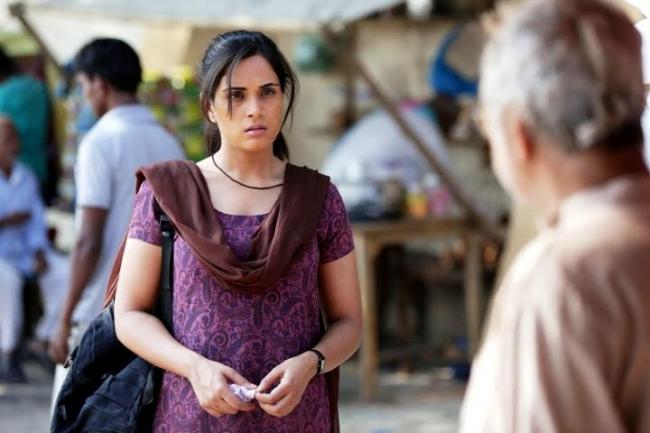
Varanasi pulled me like a magnet: Neeraj Ghaywan
What was your reaction to the two awards at Cannes?
Masaan won the acclaimed FIPRESCI and the Promising Future awards at the 68th Cannes International Film Festival. It was greeted with a five-minute long standing ovation by the critics and reviewers. It was overwhelming for all of us because none of the cast and crew, most of who have made their debut with this film, expected such a positive response for the film. This is magical. My first film, produced by the people who inspire me, is a great feeling and now winning these awards, is a feeling one cannot articulate. I am happier for India and my team than myself. A win in the official selection has been long overdue for India and we have a double win.
What is the story about?
It is about four lives that intersect in different circumstances along the Ganges in Varanasi. One is a low-caste boy who studies civil engineering at night while he joins his father and family in lighting funeral pyres during the day. He falls in love with a high-caste girl. A computer-trained young woman finds herself hopelessly trapped by the police in a spontaneous sexual encounter and tries to get out of it even while harbouring feelings of guilt for the boy she had the encounter with. Her father, a high-caste Brahmin and a scholar in Sanskrit, sees his life slipping away from him when he discovers things about his daughter. There is a small orphan boy who works for the old man but yearns for a better life.
Why did you choose Varanasi as the backdrop?

There are several reasons. The first one is that I have noticed that mainstream films in Bollywood have a tendency to place their stories against the backdrop of mega cities like Bombay, Delhi, Bangalore and so on. I wished to bring out the feeling of a city where tradition and modernity blend and bring about the confusions that result from this contradiction. Less important cities are marginalised by filmmakers. The second reason is that when I was assisting Anurag Kashyap for Gangs of Wasseypur, we spent four months in Varanasi which worked like magic on me despite the dirt and the squalor and the narrow bylanes and all that. The city haunted me and pulled me like a magnet. I just had to come back and I did. I cannot quite articulate why and how it pulled me but it did and it does. Thirdly, I wanted to prove that Varanasi which is often called the city of the dead is also a city that pulsates with life on a different level. There is hope and my film spells it out.
You have chosen a largely debutant cast and crew. You are also new. Was this deliberate?
Yes, it was deliberate. Anurag had told me that new entrants are very passionate about the film they are featuring in and are prepared to give their 100% to the film. They are as much passionate as the director is. They participate in the film and not just in it to act or to express technique. This does away with any kind of hierarchy on the sets or in the studios and I wanted this feeling that all of us were making the film, not me alone. But the more experienced ones – Richa Chadda, Sanjay Mishra, Vineet Kumar have also done me proud.
Your training ground in films was assisting Anurag Kashyap in Gangs of Wasseypur I and II and as second unit director in Ugly. But your film is very different in treatment, style and approach than Kashyap’s films that are filled with graphic violence. Can you explain this?
Thematically, we are similar in the sense that both of us love to shoot on actual locations. I have picked this up from him, true. As for violence, I personally do not believe in showing graphical violence on screen because I feel that it is the impact of violence not actually shown visually is more important than the depiction of graphic violence. The effect is more if the violence is not shown but suggested.
You have chosen city-bred, modern young actors to play the main roles. How did you make them convert themselves to a small town, very different background from the ones they came from?
I explicitly told them that they had to surrender themselves to the character they were playing and to the film they were playing in. They had to “become” the person they were in the film and not “act” out a character and make the city and its surroundings accept them. I learnt Bhojpuri myself so that I could converse with the locals and they could feel one with me. If they were to strip themselves of any baggage of their real environment, they had to have an ‘insider’s’ view of the story and the character. I think that worked because the locals began to like us a lot and contributed to the film too. In fact, the small boy who plays an important role is from the ghats himself.
Masaan is almost a crowd-funded film under several banners such as Drishyam Films, Macassar Productions which is a French firm, Sikhya Entertainment and Phantom Films. Was this restrictive or did you have the freedom you wished for?
They did not interfere even once and I had complete freedom to work as I wanted to and had planned to. My producers are very happy. If you ask me the secret of the film’s critical success as of now has been our honesty.
Support Our Journalism
We cannot do without you.. your contribution supports unbiased journalism
IBNS is not driven by any ism- not wokeism, not racism, not skewed secularism, not hyper right-wing or left liberal ideals, nor by any hardline religious beliefs or hyper nationalism. We want to serve you good old objective news, as they are. We do not judge or preach. We let people decide for themselves. We only try to present factual and well-sourced news.






